Image world fastest animal fights face to face with the most deadliest ancient, armored predator in the animal kingdom. I personally would love to see who will win in such a historic face to face fight!, There were some videos on youtube , But its so hard to find a face to face battle, the reason is crocodiles are mostly ambush attackers. Anyway Below I have Bought a full detailed well researched article about Cheetah vs Crocodile who wins?
- Cheetah (Acinonyx jubatus)
- Crocodile (Crocodylus porosus)
Below tables cover 10 main topics by including all the numerical and scientifical data by comparing Cheetah vs Crocodile . Also I have included a winner column for further understanding, So keep reading till the end.
Hope you will enjoy my research!
1. Body Specifications
| Feature | Cheetah | Crocodile | Winner |
|---|---|---|---|
| Height (Shoulder) | 0.75–0.90 m | 0.5–0.75 m | Cheetah |
| Length (Body + Tail) | 1.1–1.5 m (body) + 0.6–0.8 m (tail) | 4.0–6.0 m | Crocodile |
| Weight | 35–72 kg | 400–1,000+ kg | Crocodile |
| Muscle Mass Ratio | High leg muscle density | Massive core and jaw muscles | Tie |
| Bone Density | Light, optimized for speed | Very dense, suited for water | Crocodile |
| Head Size | Small, streamlined | Massive and robust | Crocodile |
| Limb Strength | Long and slender | Short but extremely powerful | Crocodile |
| Skull Structure | Lightweight | Reinforced and thick | Crocodile |
| Fat Storage | Low (lean build) | Moderate to high | Crocodile |
| Sexual Dimorphism | Slight | Present (males larger) | Crocodile |
Winner: Crocodile
2. Coat and Coloration
| Feature | Cheetah | Crocodile | Winner |
|---|---|---|---|
| Base Color | Tan to golden | Green-gray, olive | Tie |
| Pattern | Black spots | None, mottled | Cheetah |
| Function of Coloration | Camouflage in grasslands | Camouflage in water/mud | Tie |
| Melanin Variation | Rare melanism | Some darker individuals | Tie |
| UV Protection | Moderate | High (thick skin) | Crocodile |
| Seasonal Coat Change | No | No | Tie |
| Camouflage Effectiveness | High on land | High in water | Tie |
| Coat Texture | Short, sleek fur | Rough, scaly armor | Tie |
| Maintenance | Grooming via licking | No grooming | Cheetah |
| Visual Signaling | Facial markings (tear lines) | Body language and motion | Cheetah |
Winner: Tie
3. ️ Habitat and Range – Cheetah vs Crocodile
| Feature | Cheetah | Crocodile | Winner |
|---|---|---|---|
| Native Range | Sub-Saharan Africa, Iran | Indo-Pacific, SE Asia, Australia | Tie |
| Habitat Type | Grasslands, savannahs | Rivers, estuaries, coasts | Tie |
| Habitat Adaptability | Low (very specific) | High (salt/freshwater) | Crocodile |
| Home Range Size | 20–1,500 km² | Smaller, territorial | Cheetah |
| Migration Patterns | Minimal | Minimal | Tie |
| Elevation Tolerance | Up to 2,000 m | Sea level mostly | Cheetah |
| Human Proximity Tolerance | Low | High | Crocodile |
| Environmental Impact | Apex predator in land ecosystems | Keystone species in aquatic ecosystems | Tie |
| Urban Adaptability | Very low | Moderate | Crocodile |
| Global Distribution | Fragmented | Broad and expanding | Crocodile |
Winner: Crocodile
4. Diet and Hunting
| Feature | Cheetah | Crocodile | Winner |
|---|---|---|---|
| Diet Type | Obligate carnivore | Carnivore (opportunistic) | Tie |
| Typical Prey | Gazelles, hares | Fish, birds, mammals | Tie |
| Hunting Technique | Sight-based sprinting | Ambush from water | Tie |
| Hunting Success Rate | ~50% | ~70–90% (ambush) | Crocodile |
| Daily Caloric Intake | ~3–5 kg of meat | Can fast for weeks | Crocodile |
| Teeth Type | Carnassials, canines | Conical, gripping teeth | Tie |
| Hunting Time | Daylight | Dusk/dawn/nocturnal | Crocodile |
| Prey Dispatch Method | Suffocation | Drowning, death roll | Crocodile |
| Bite Duration | Quick kill | Long-lasting grip | Crocodile |
| Food Storage | None | Can cache prey underwater | Crocodile |
Winner: Crocodile
5. Strength and Bite Force
| Feature | Cheetah | Crocodile | Winner |
|---|---|---|---|
| Bite Force | ~475 PSI | 3,700–5,000 PSI | Crocodile |
| Claw Strength | Sharp, semi-retractable | Thick, powerful claws | Tie |
| Grip Power | Low (speed-based predator) | Extreme (jaw lock) | Crocodile |
| Muscle Strength (Legs) | Very high | Low (short legs) | Cheetah |
| Tail Strength | Balance-focused | Extremely strong, used for swimming | Crocodile |
| Lift Capacity | ~50–60% of body weight | Can drag prey > own weight | Crocodile |
| Skull Strength | Light build | Reinforced for impact | Crocodile |
| Bone-Crushing Ability | None | Yes | Crocodile |
| Kill Method | Suffocation by neck bite | Crushing, drowning | Crocodile |
| Endurance Strength | Low | High | Crocodile |
Winner: Crocodile
6. Speed and Agility – Cheetah vs Crocodile
| Feature | Cheetah | Crocodile | Winner |
|---|---|---|---|
| Top Speed | 93–112 km/h | 24–29 km/h (land), 32 km/h (water) | Cheetah |
| Acceleration (0–100 km/h) | <3 seconds | N/A | Cheetah |
| Agility (Land) | Extremely high | Poor | Cheetah |
| Agility (Water) | Poor | Excellent | Crocodile |
| Turning Radius | Tight, precise | Wide | Cheetah |
| Jumping Ability | Up to 10 m in a single leap | Cannot jump | Cheetah |
| Climbing Ability | Moderate | None | Cheetah |
| Swimming Ability | Poor | Excellent | Crocodile |
| Stamina | Low (short bursts) | High | Crocodile |
| Recovery Rate | Fast | Slow (long digestion needed) | Cheetah |
Winner: Cheetah
7. Senses – Cheetah vs Crocodile
| Feature | Cheetah | Crocodile | Winner |
|---|---|---|---|
| Vision (Daylight) | Exceptional (20/10 vision) | Moderate | Cheetah |
| Vision (Night) | Moderate | Good (tapetum lucidum) | Crocodile |
| Hearing Range | 0.1 to 60 kHz | 0.1 to 2 kHz | Cheetah |
| Olfactory Senses | Moderate | Strong (smell in water) | Crocodile |
| Lateral Line Detection | None | Yes (detects movement in water) | Crocodile |
| Thermal Detection | Weak | Present (dermal pressure receptors) | Crocodile |
| Situational Awareness | High in open plains | High in water | Tie |
| Reaction Time | Extremely fast | Slower | Cheetah |
| Sense Usage in Hunting | Sight-heavy | Vibration + stealth | Tie |
| Cognitive Sensing | High visual processing | High tactile processing | Tie |
Winner: Tie
8. Reproduction and Lifespan
| Feature | Cheetah | Crocodile | Winner |
|---|---|---|---|
| Gestation Period | ~90–95 days | 80–100 days | Tie |
| Litter Size | 2–6 cubs | 30–60 eggs | Crocodile |
| Offspring Mortality | High (up to 90%) | High (due to predation) | Tie |
| Parental Care | 18 months (mother only) | Female guards nest & hatchlings | Crocodile |
| Age of Sexual Maturity | 2 years (female), 3 (male) | 10–12 years | Cheetah |
| Reproductive Frequency | Every 18–24 months | Every 1–2 years | Crocodile |
| Lifespan (Wild) | 10–12 years | 70–100 years | Crocodile |
| Lifespan (Captivity) | Up to 17 years | 100+ years | Crocodile |
| Breeding Habitat | Solitary dens | Riverbanks, nesting mounds | Tie |
| Reproductive Strategy | Low offspring, high investment | High offspring, low investment | Tie |
Winner: Crocodile
9. Social Behavior – Cheetah vs Crocodile
| Feature | Cheetah | Crocodile | Winner |
|---|---|---|---|
| Social Structure | Solitary (except males & mothers with cubs) | Solitary | Tie |
| Territoriality | Strong | Strong | Tie |
| Home Range Size | Very large | Smaller, localized | Cheetah |
| Communication | Vocal, body posture, scent-marking | Low vocalization, body language | Cheetah |
| Conflict Behavior | Avoidant | Aggressive if provoked | Cheetah |
| Mating Behavior | Short, competitive | Polygynous | Tie |
| Parental Involvement | High maternal care | High initial guarding | Tie |
| Cooperation | Rare | None | Tie |
| Intelligence | High (problem-solving) | Moderate | Cheetah |
| Human Interaction | Easily stressed | Often aggressive | Cheetah |
Winner: Cheetah
10. Conservation Status
| Feature | Cheetah | Crocodile | Winner |
|---|---|---|---|
| IUCN Status | Vulnerable | Least Concern | Crocodile |
| Wild Population Estimate | ~7,000 | ~200,000 | Crocodile |
| Threats | Habitat loss, poaching, human conflict | Habitat destruction, illegal hunting | Tie |
| Conservation Programs | CCF, Panthera, WCS | WWF, National protection laws | Tie |
| Breeding in Captivity | Challenging | Successful | Crocodile |
| International Protection | CITES Appendix I | CITES Appendix I/II | Tie |
| Human-Wildlife Conflict | Moderate | High | Cheetah |
| Population Trend | Declining | Stable/increasing | Crocodile |
| Range Fragmentation | High | Low | Crocodile |
| Resilience to Climate Change | Low | Moderate | Crocodile |
Winner: Crocodile
⚔️ Face-to-Face Fight Analysis: Cheetah vs Crocodile
- Environment Matters: On land, cheetahs dominate in open terrain due to agility. But near or in water, crocodiles rule with deadly ambush power.
- Speed vs Power: Cheetah may outmaneuver but can’t inflict fatal injuries easily due to the crocodile’s armored hide.
- One Mistake Is Fatal: If the cheetah missteps near water, the crocodile’s lightning-fast strike could end it instantly.
Final Combat Verdict:
Winner in a Face-to-Face Fight: Crocodile
Conclusion: Overall Winner
| Category | Winner |
|---|---|
| Body Specifications | Crocodile |
| Coat and Coloration | Tie |
| Habitat and Range | Crocodile |
| Diet and Hunting | Crocodile |
| Strength and Bite Force | Crocodile |
| Speed and Agility | Cheetah |
| Senses | Tie |
| Reproduction and Lifespan | Crocodile |
| Social Behavior | Cheetah |
| Conservation Status | Crocodile |
Overall Winner: Crocodile
Why the Crocodile Wins:
- Superior bite force and armored skin
- Exceptional stealth and ambush tactics
- Massive size and strength advantage
- Incredible resilience and longevity
Why the Cheetah Loses:
- Fragile build with low endurance
- Lacks tools for a decisive kill
- Not adapted for aquatic ambushes
References (One-Line with Hyperlinks)
- National Geographic: Cheetah Facts
- Smithsonian’s National Zoo – Cheetah Profile
- Britannica – Saltwater Crocodile
- Animal Diversity Web: Crocodylus porosus
- Panthera Cheetah Conservation
Don’t Forget to leave a comment Below! Who do you think is the winner?
Read More – Rhino vs Cheetah : The A Comprehensive Comparison
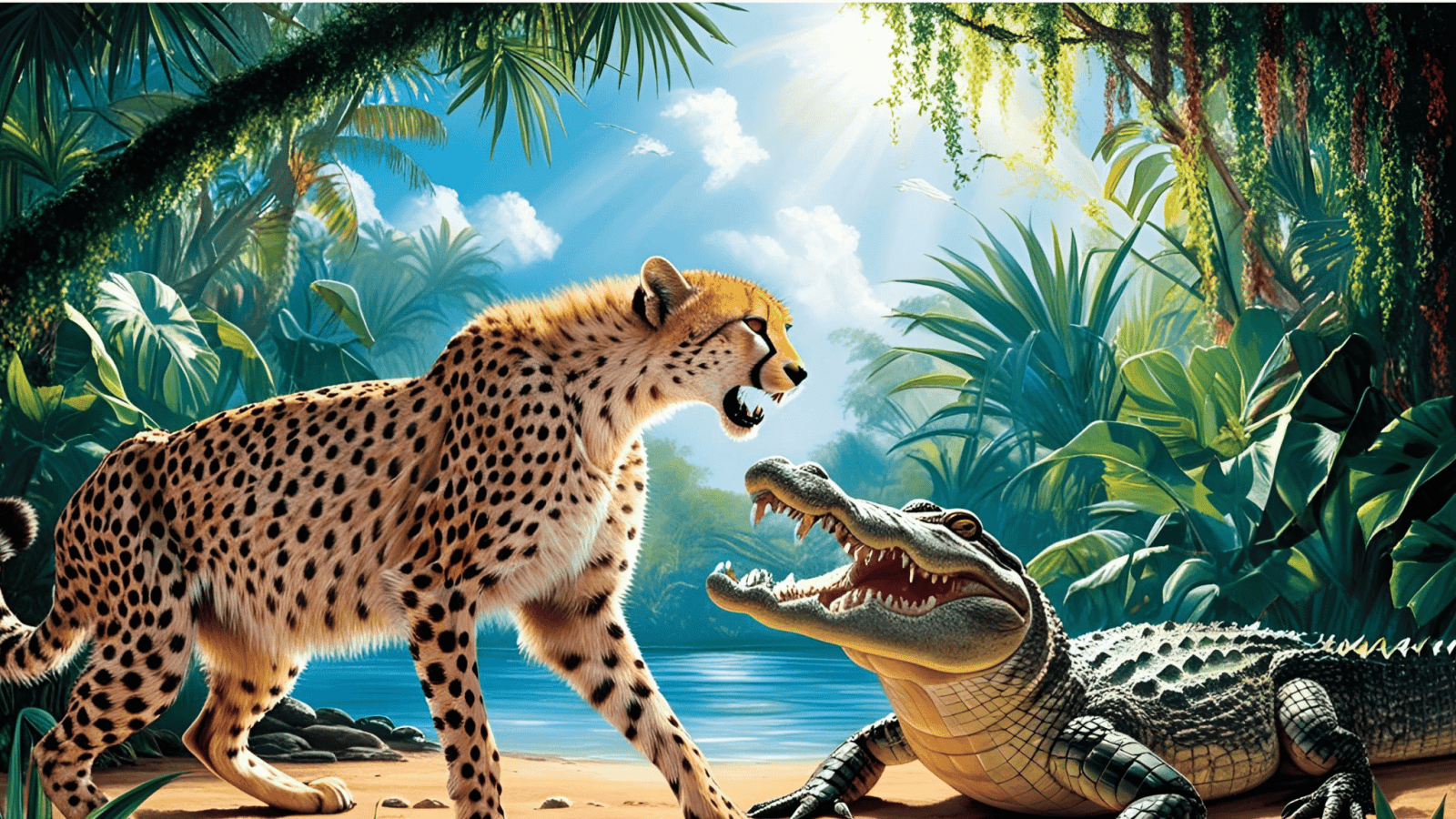
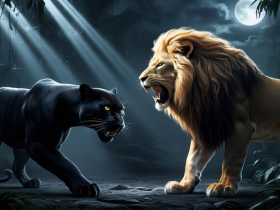
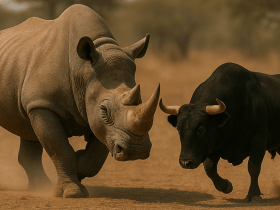
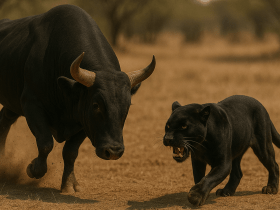

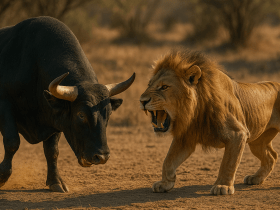
Leave a Reply